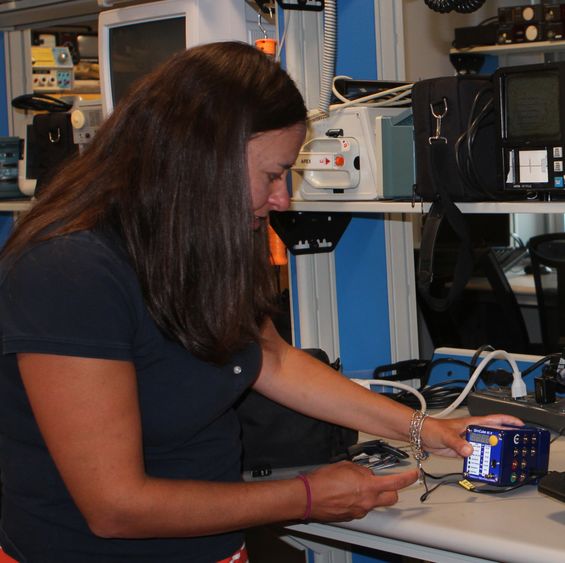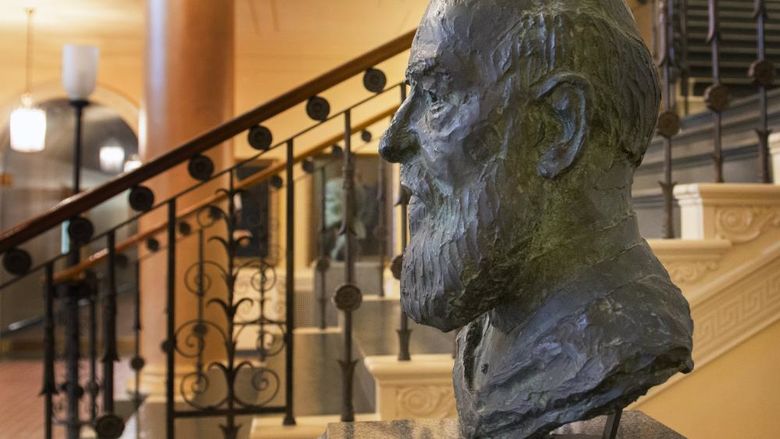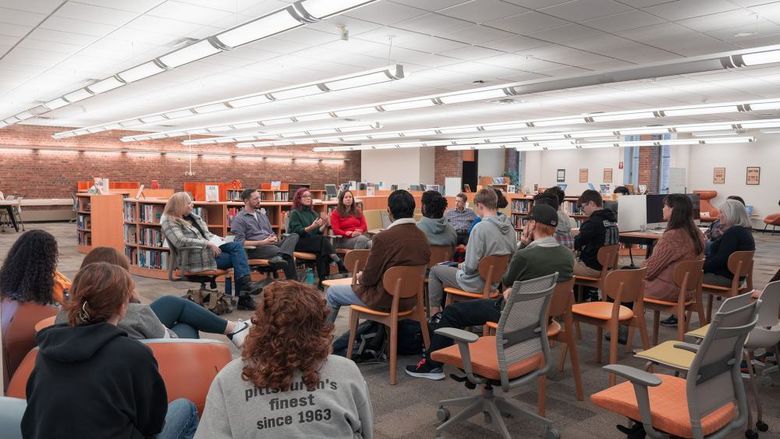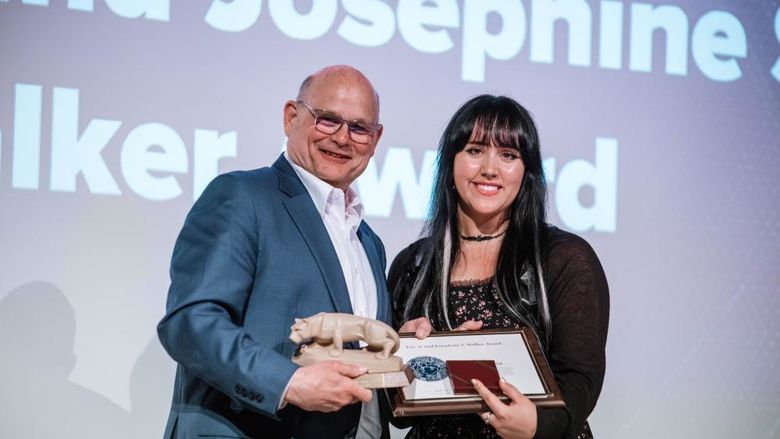
Joie Marhefka, coordinator of the Biomedical Engineering Technology program, activates the new Sim Cube, a compact, portable device that allows students to simulate and test medical devices, such as blood pressure monitors. Marhefka purchased the device for the BET lab with a programming grant from Penn State.
NEW KENSINGTON, Pa. -- Designing robots and testing equipment that monitors patients’ vital signs will be hands-on projects in the fall for Penn State New Kensington students in the engineering technology programs.
Karl Harris, instructor and coordinator of the Electro-Mechanical Engineering Technology (EMET) program, and Joie Marhefka, senior instructor and coordinator of the Biomedical Engineering Technology (BET) program, recently received program enhancement grants from Penn State to upgrade and modernize their respective labs. The purpose of the grants is to fund initiatives that provide new learning environments for students.
"Our engineering technology programs are driven by hands-on, experiential learning, and so our lab environments are critical to the student learning experience,” said Andrea Adolph, director of academic affairs. “We are so pleased to have been awarded not one, but two grants from the University in support of our programs so that we can continue to increase the kinds of opportunities available to our students."
EMET
The EMET bachelor’s degree program emphasizes all fields of engineering technology related to typical, highly-automated manufacturing, production, or assembly plant processes. EMET graduates acquire the skills necessary to apply current methods and technology to the development, design, operation, and management of electro-mechanical systems.
Harris’ grant provided robotic hardware and software upgrades to the automation portion of the EMET labs. Students will learn how engineers in various industries use system design, programming, automation and feedback control. Guided by the curriculum and their own innovation, students will be able to design automated engineering systems.
“Students will be able to design, build, power, and operate robots with customized robot controls, autonomous programming and sensors integration,” Harris said.
After 16 years as director of the Penn State Electro-Optics Center in Freeport, Harris joined the campus faculty in January. With over 30 years of technical and executive experience, he is at the forefront of emerging electro-optic technologies.
“As a former employer in industry, I know first-hand that students entering the workforce with these types of hands-on experiences and general understanding of system engineering and programming are well-positioned for the engineering workforce,” Harris said. “We are addressing the future educational needs required by hiring employers.”
Harris holds a doctorate in physics from North Carolina State University and bachelor’s in chemistry and physics from University of North Carolina. He has written more than 100 papers that have been published by national journals and participated in numerous seminars, workshops and panel discussions throughout the country.
For more information, visit EMET
BET
Marhefka’s grant helped modernize the BET lab with the addition of a Sim Cube, a compact, portable device that allows for simulation and testing of numerous medical devices, such as blood pressure monitors and pulse oximeters. Sim Cube is used to test the equipment used for patient monitoring.
“The new equipment will expose them to modern test/simulation devices and allow them to gain hands-on experience with this type of equipment before seeing it in an internship or job setting,” Marhefka said. “It will provide for more opportunities for students to work with different types of equipment in the laboratory setting and gain experience and confidence that will be invaluable in their careers.”
Starting at the campus at the same time as Harris, Marhefka, a bioengineer, is an experienced educator and researcher. As BET coordinator, she is responsible for a program that is known for producing well-qualified and knowledgeable technicians. Healthcare providers, including hospitals and clinics, rely on biomedical engineering technicians to operate, maintain, troubleshoot, and repair medical equipment. Technicians' tasks include inspections and calibration. The campus’ program is one of only four programs in the nation to be accredited by the Technology Accreditation Commission for the Accreditation Board for Engineering and Technology.
“The upgraded lab will enhance the student’s learning experience by introducing them to modern testing equipment used by technicians in the clinical testing field,” Marhefka said.
Marhefka earned a bachelor’s degree in chemical engineering at Villanova University and a doctorate in bioengineering at the University of Pittsburgh. She authored 10 peer-reviewed publications and presented at numerous national and international conferences.
For more information, visit BET
Bill Woodard
Alumni and Public Relations Specialist




